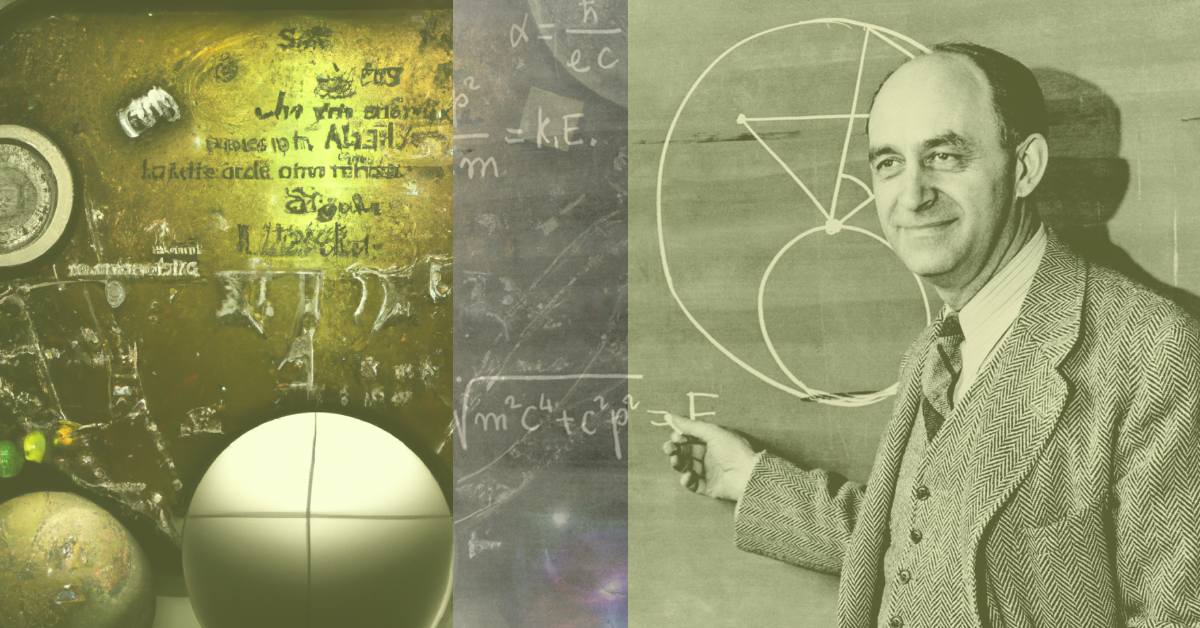Enrico Fermi (1901-1954) was an Italian-American physicist who made significant contributions to the field of nuclear physics and was one of the key figures in the development of the atomic bomb.
Fermi was born in Rome and for the most part had a “normal” childhood of the day. One morning, at the daily market in Campo de’ Fiori, Fermi came upon a misplaced physics text entitled, Elementorum physicae mathematicae. It was written in Latin by the Jesuit scholar, Father Andrea Caraffa, a professor at the nearby Collegio Romano. The book described math, mechanics, astronomy, optics, and acoustics as they were understood at the time of its writing in 1840. This moment proved inspirational to his future academic pursuits.
He went on to study physics at the University of Pisa, then later became a professor at the University of Rome where made a number of important contributions to the field of nuclear physics. In 1938, Fermi was awarded the Nobel Prize in Physics for his work on the artificial radioactivity produced by neutron bombardment.
In 1939, Fermi immigrated to the United States to escape the political situation in Europe. He began working at Columbia University, where he conducted research on nuclear fission. Fermi’s work on nuclear fission led to the creation of the first controlled nuclear chain reaction in a laboratory setting, which took place in 1942 at the University of Chicago.
Fermi’s work on nuclear fission and chain reactions played a crucial role in the development of the atomic bomb. He was a key member of the Manhattan Project, a top-secret government program that developed the first nuclear weapons during World War II. Fermi’s expertise in nuclear physics was instrumental in the design and construction of the first nuclear reactor, which was used to produce plutonium for the atomic bomb.
After the war, Fermi continued to work on nuclear physics and became a professor at the University of Chicago. He was awarded the Medal of Merit by President Harry Truman for his contributions to the Manhattan Project. Fermi also made important contributions to the field of high-energy physics and was a pioneer in the development of the first particle accelerators.
He died on November 28th, 1954, of stomach cancer in his home in Chicago. He was only 53 years-old. Fermi suspected that working with radioactive materials involved great risk, but he pressed on, because he believed that the benefits to society outweighed the risks to his personal health. Two of his graduate student assistants working near the pile also died of cancer.
Enrico Fermi is widely regarded as one of the most important physicists of the 20th century. His contributions to the development of the atomic bomb and nuclear physics were pivotal in shaping the course of modern history.

